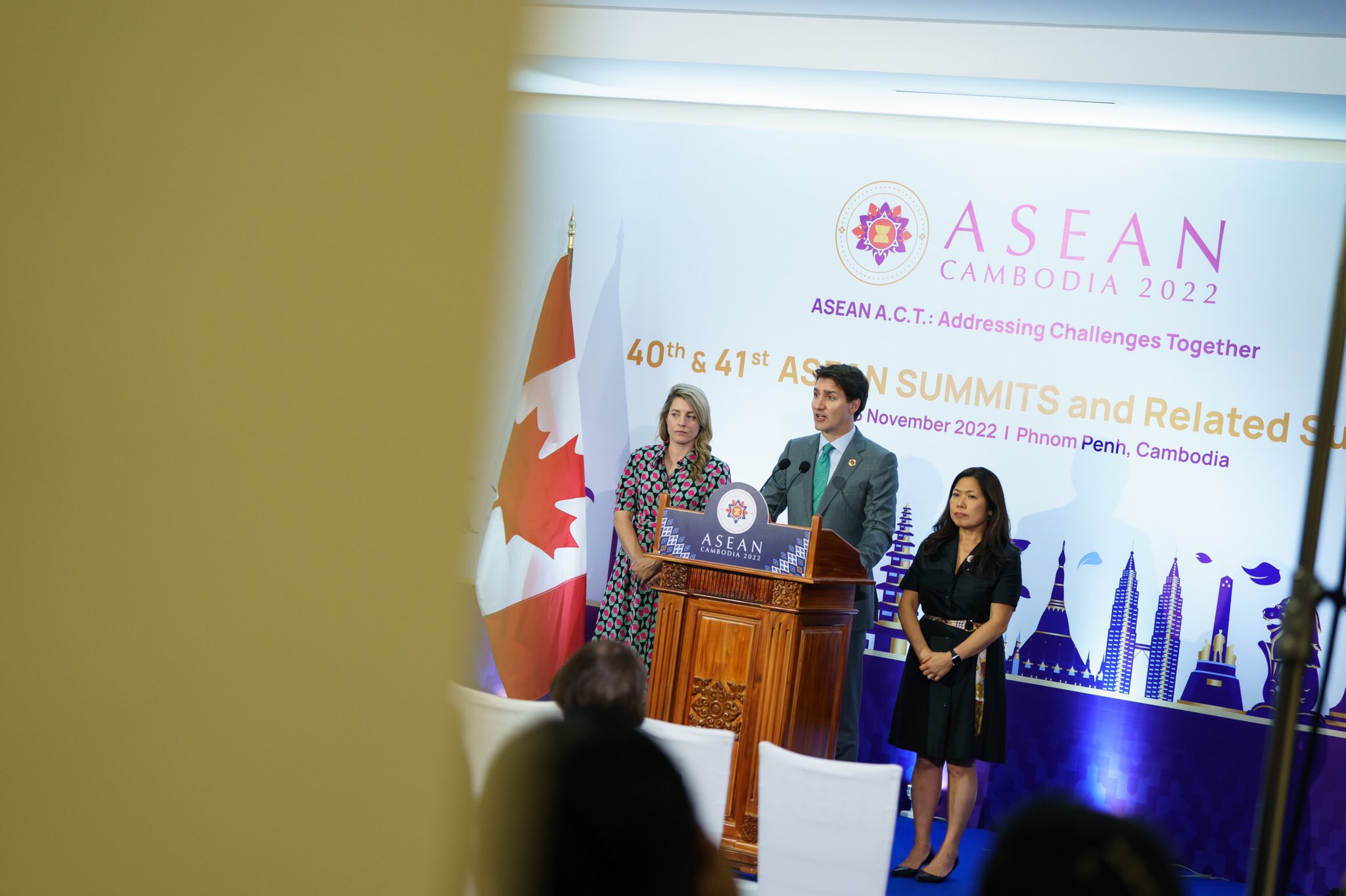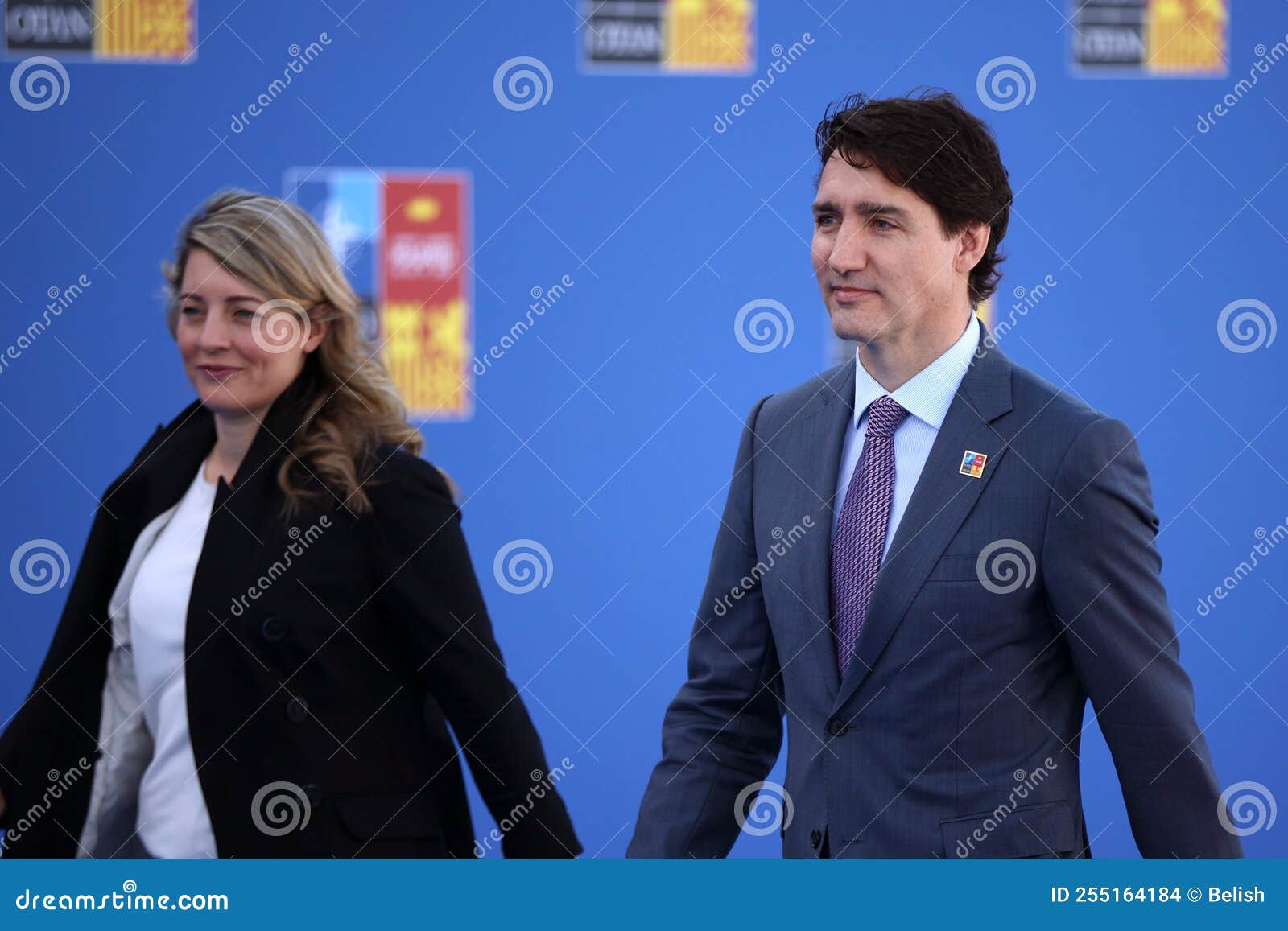When discussing Canadian politics, the names Mélodie Joly and Justin Trudeau often emerge in conversations due to their significant contributions and interconnected roles in shaping the nation’s policies and public image. Mélodie Joly, a prominent political figure, has carved her niche as a dedicated advocate for cultural and economic reforms. Meanwhile, Justin Trudeau, Canada’s charismatic Prime Minister, continues to be a global symbol of progressive leadership. Their relationship, both professional and collaborative, has sparked curiosity among citizens and media alike. Whether it’s their shared vision for Canada’s future or their individual paths to leadership, the synergy between these two figures is worth exploring.
Mélodie Joly’s tenure as a minister in Trudeau’s cabinet highlights their partnership in addressing critical national issues. Together, they have championed causes such as cultural preservation, digital transformation, and climate action. Their alignment on these issues not only reflects their shared values but also underscores a commitment to fostering a more inclusive and innovative Canada. While their personal relationship remains professional, their collaborative efforts have been instrumental in driving impactful policy changes.
For those intrigued by the dynamics of leadership and governance, the relationship between Mélodie Joly and Justin Trudeau offers a fascinating lens through which to examine modern Canadian politics. Their ability to balance individual expertise with collective goals serves as a testament to their leadership qualities. This article delves deeper into their professional journeys, shared achievements, and the broader implications of their partnership, shedding light on how they continue to influence Canada’s trajectory.
Read also:Unraveling The Mystery What Happened In The Four Girls One Fingerprint Viral Video
Table of Contents
- Biography of Mélodie Joly and Justin Trudeau
- Personal Details and Bio Data
- How Did Mélodie Joly and Justin Trudeau Meet?
- What Is Their Shared Vision for Canada?
- Professional Collaboration and Achievements
- What Challenges Have They Faced Together?
- Public Perception of Their Relationship
- Future Prospects and Potential Impact
- Frequently Asked Questions
Biography of Mélodie Joly and Justin Trudeau
Mélodie Joly and Justin Trudeau have both carved unique paths in Canadian politics, marked by dedication, resilience, and a commitment to public service. Mélodie Joly, born on October 13, 1979, in Montreal, Quebec, is a lawyer by training and a passionate advocate for cultural and economic reforms. Her journey into politics began with her election to the House of Commons in 2015, where she quickly established herself as a leader with a vision for Canada’s future. Over the years, she has held various ministerial roles, including Minister of Canadian Heritage and Minister of Economic Development.
Justin Trudeau, born on December 25, 1971, in Ottawa, Ontario, is the eldest son of former Prime Minister Pierre Trudeau. His entry into politics was almost inevitable, given his family legacy, but he carved his own identity by focusing on progressive policies and inclusivity. Trudeau’s rise to prominence began with his election as a Member of Parliament in 2008, and he became the leader of the Liberal Party in 2013. His tenure as Prime Minister, beginning in 2015, has been marked by efforts to position Canada as a global leader in areas such as climate action, gender equality, and multiculturalism.
Both leaders have faced challenges and criticisms, yet their shared commitment to public service has remained unwavering. While their individual journeys have been distinct, their paths converged in Trudeau’s cabinet, where Mélodie Joly has played a pivotal role in advancing policies aligned with the Prime Minister’s vision. Their professional relationship has been a cornerstone of Canada’s recent political landscape, reflecting a partnership rooted in mutual respect and shared goals.
Personal Details and Bio Data
| Name | Date of Birth | Place of Birth | Profession | Political Party | Key Roles |
|---|---|---|---|---|---|
| Mélodie Joly | October 13, 1979 | Montreal, Quebec | Lawyer, Politician | Liberal Party of Canada | Minister of Canadian Heritage, Minister of Economic Development |
| Justin Trudeau | December 25, 1971 | Ottawa, Ontario | Teacher, Politician | Liberal Party of Canada | Prime Minister of Canada, Leader of the Liberal Party |
How Did Mélodie Joly and Justin Trudeau Meet?
One of the most intriguing aspects of Mélodie Joly and Justin Trudeau’s professional relationship is how their paths first crossed. Their meeting was not a chance encounter but rather a result of shared political aspirations and a mutual commitment to public service. Mélodie Joly’s entry into federal politics in 2015 coincided with Justin Trudeau’s rise as the leader of the Liberal Party, setting the stage for their collaboration. Both were part of a wave of new leaders determined to bring fresh perspectives to Canadian governance.
During the 2015 federal election campaign, Joly and Trudeau worked closely within the Liberal Party framework, advocating for progressive policies and engaging with diverse communities across Canada. Their shared vision for a more inclusive and innovative Canada naturally brought them together, fostering a professional rapport built on trust and mutual respect. Trudeau’s leadership style, which emphasizes teamwork and inclusivity, resonated with Joly’s approach to governance, further solidifying their partnership.
Over time, their relationship evolved from colleagues to collaborators, with Joly taking on key roles in Trudeau’s cabinet. Their ability to work seamlessly on complex issues such as cultural preservation and economic development highlights the strength of their professional bond. While their personal interactions remain largely private, their public synergy has been a driving force behind several landmark initiatives. This dynamic not only underscores their compatibility but also reflects their dedication to advancing Canada’s interests on both domestic and international stages.
Read also:What Is Sone 385 A Comprehensive Guide To Its Features And Benefits
Key Moments in Their Early Collaboration
- 2015 Election Campaign: Joly and Trudeau worked together to promote the Liberal Party’s platform, focusing on cultural and economic reforms.
- Cabinet Appointment: Joly’s appointment as Minister of Canadian Heritage marked the beginning of her influential role in Trudeau’s administration.
- Policy Alignment: Their shared commitment to progressive policies laid the foundation for a strong professional relationship.
What Is Their Shared Vision for Canada?
At the heart of Mélodie Joly and Justin Trudeau’s professional relationship lies a shared vision for Canada’s future—one that emphasizes inclusivity, innovation, and sustainability. Both leaders have consistently championed policies that aim to create a more equitable and prosperous society. Their collaboration has been particularly evident in areas such as cultural preservation, digital transformation, and climate action, where their combined efforts have yielded significant results.
One of their most notable joint initiatives is the promotion of Canada’s cultural industries. Mélodie Joly, in her role as Minister of Canadian Heritage, has worked closely with Trudeau to ensure that Canadian artists and creators receive the support they need to thrive in a rapidly changing digital landscape. This includes investments in media infrastructure, funding for indigenous cultural projects, and policies that protect Canadian content in an era of global streaming platforms. Their shared belief in the importance of cultural identity has been a driving force behind these efforts.
In addition to cultural initiatives, Joly and Trudeau have also focused on fostering economic growth through innovation. Their policies have prioritized digital transformation, aiming to position Canada as a leader in technology and artificial intelligence. By investing in research and development and supporting small businesses, they have sought to create a more resilient and competitive economy. Furthermore, their commitment to climate action has been evident in initiatives such as the carbon pricing plan and investments in renewable energy, underscoring their dedication to building a sustainable future for all Canadians.
Core Pillars of Their Vision
- Cultural Preservation: Supporting Canadian artists and protecting cultural heritage.
- Digital Transformation: Advancing technology and innovation to drive economic growth.
- Climate Action: Implementing policies to combat climate change and promote sustainability.
Professional Collaboration and Achievements
The professional collaboration between Mélodie Joly and Justin Trudeau has been nothing short of transformative for Canadian governance. Their partnership has been characterized by a seamless alignment of expertise, vision, and execution, resulting in several landmark achievements that have shaped the nation’s trajectory. From cultural initiatives to economic reforms, their combined efforts have left an indelible mark on Canada’s political landscape.
One of their most significant accomplishments has been the revitalization of Canada’s cultural sector. Under Joly’s leadership as Minister of Canadian Heritage, the government introduced the Creative Canada policy, which aimed to support the country’s creative industries in adapting to the digital age. This initiative included increased funding for Canadian media, the promotion of indigenous storytelling, and measures to ensure Canadian content remains competitive on global platforms. Trudeau’s unwavering support for these policies underscored the administration’s commitment to preserving Canada’s cultural identity while embracing technological advancements.
On the economic front, Joly and Trudeau have worked hand-in-hand to drive innovation and growth. As Minister of Economic Development, Joly spearheaded initiatives to position Canada as a global leader in artificial intelligence and clean technology. Their collaborative efforts led to the creation of innovation hubs across the country, providing startups and researchers with the resources they need to thrive. Additionally, their focus on inclusive economic policies has helped bridge gaps for underrepresented communities, ensuring that the benefits of growth are shared by all Canadians. These achievements not only highlight their shared vision but also demonstrate their ability to translate ideas into impactful action.
What Challenges Have They Faced Together?
Despite their shared successes, Mélodie Joly and Justin Trudeau’s journey has not been without its challenges. Navigating the complexities of Canadian politics requires resilience, adaptability, and a willingness to address criticism head-on. Their partnership has been tested by both internal and external pressures, yet their ability to overcome these hurdles has only strengthened their collaborative dynamic.
One of the most significant challenges they have faced is balancing competing priorities within the government. With a diverse range of issues demanding attention—from healthcare and education to climate change and economic recovery—allocating resources effectively has often been a delicate balancing act. Joly and Trudeau have had to navigate these complexities while ensuring that their policies align with the broader goals of the Liberal Party. This has required not only strategic planning but also a willingness to make tough decisions that sometimes draw criticism from various stakeholders.
External pressures have also played a role in testing their partnership. Public scrutiny, media coverage, and political opposition have occasionally cast a spotlight on their collaborative efforts. For instance, debates over cultural funding and digital transformation policies have sparked discussions about the effectiveness and inclusivity of their initiatives. However, their ability to remain focused on their shared vision has allowed them to weather these challenges and continue driving meaningful change. By addressing criticism constructively and adapting their strategies, Joly and Trudeau have demonstrated the strength of their partnership in the face of adversity.
Lessons Learned from Challenges
- Resilience: Overcoming obstacles has reinforced their commitment to public service.
- Adaptability: Adjusting strategies to address evolving priorities and criticisms.
- Collaboration: Strengthening their partnership through shared problem-solving.
Public Perception of Their Relationship
The relationship between Mélodie Joly and Justin Trudeau has garnered significant attention from both the public and the media, with opinions ranging from admiration to skepticism. Their professional partnership, marked by collaboration on key policy initiatives, has been praised for its effectiveness and alignment with progressive values. However, like any high-profile political alliance, it has also faced its share of scrutiny and debate.
On one hand, many Canadians view their collaboration as a model of effective governance. Supporters highlight their shared commitment to cultural preservation, economic innovation, and climate action, applauding their ability to translate vision into tangible results. Media outlets have often praised Joly’s leadership in advancing Canada’s cultural industries, with Trudeau’s backing seen as a testament to their shared priorities. This positive perception has been bolstered by their consistent messaging and alignment on key issues, reinforcing public confidence in their partnership.
On the other hand, critics have occasionally questioned the dynamics of their relationship, particularly in terms of decision-making and resource allocation. Some have raised concerns about whether their collaboration prioritizes certain sectors


